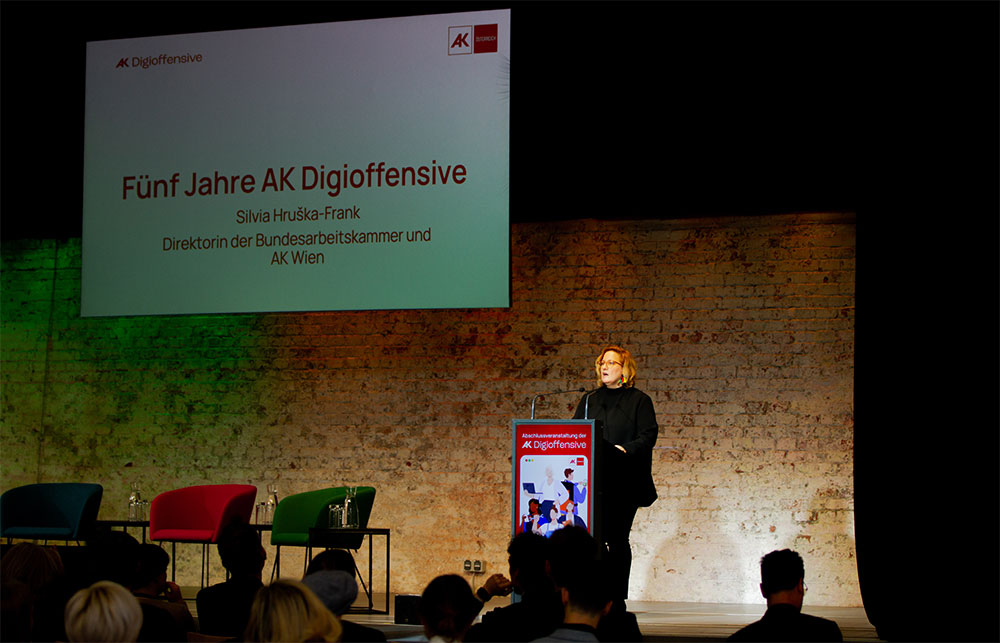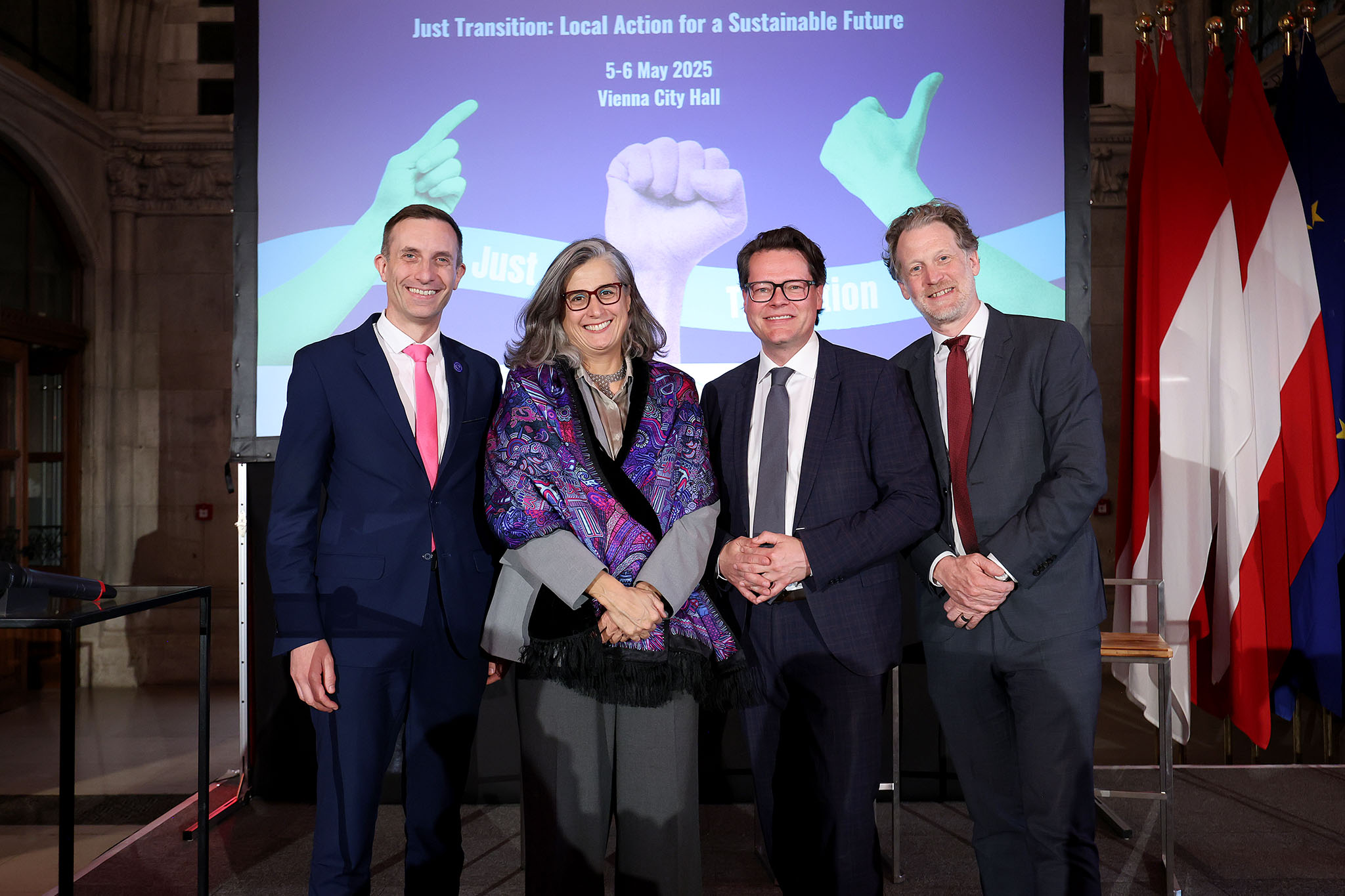Closing conference of the Digital Initiative by the Austrian Chamber of Labor
The concluding event of the Chamber of Labor’s Digitalization Initiative (AK Digioffensive) represents a significant milestone in the Chamber’s efforts to ready the Austrian workforce for the digital age.
In 2018, the Chambers of Labor in Austria outlined in their future program to launch an extensive digitalization initiative. The approximately 500 supported projects, however, do not mark the end of the initiative but rather a turning point. The closing conference extensively delved into the question of how to proceed in creating a just working world. Representatives of the “Highlight Projects” presented their key insights since the beginning of their journey in a World Café format. Participants gained a deeper understanding of the specific challenges of digital transformation and how these challenges can be addressed through successful practices – from apps for workers’ councils to projects examining algorithms in the workplace.
Unequal Power Dynamics in the Digital Age: Challenges and Perspectives
The discussion on unequal power dynamics in the digital age was a central theme, as highlighted in a panel. Experts from the labor market, including Jörg Flecker, a sociologist at the University of Vienna, emphasized the importance of access in the digital industry. Particularly in creative, digital professions, practical experience days in middle school are often lacking, making the path to these professions more challenging. Entry often occurs through internships, where perseverance and financial support from parents are crucial.
Robert Walasinski from the Austrian Trade Union Federation echoed this perspective, emphasizing that social justice must be the focus so that certain groups trapped in low-wage jobs can overcome barriers to career advancement.
On the other hand, political scientist and journalist Sabine Nuss highlighted the necessity of utopias. The economy should be a place where cooperative relationships are fostered. Productive criticism and the creation of learning spaces were mentioned as key mechanisms for positive change.
AK President Renate Anderl concluded by emphasizing that the meaningfulness and ethical compatibility of artificial intelligence applications must be assessed before they are deployed in work contexts. She stressed that employees should have the opportunity to participate in the introduction of new technologies to ensure that digitization is a key to success for everyone.
Overall, the AK Digioffensive illustrates that addressing unequal power dynamics in the digital age is a multidimensional challenge. Technological, social, and political solutions are equally necessary to create a fairer and more sustainable workplace.
The opening and closing conferences were designed and organized in collaboration with the Innovation in Politics Institute.



